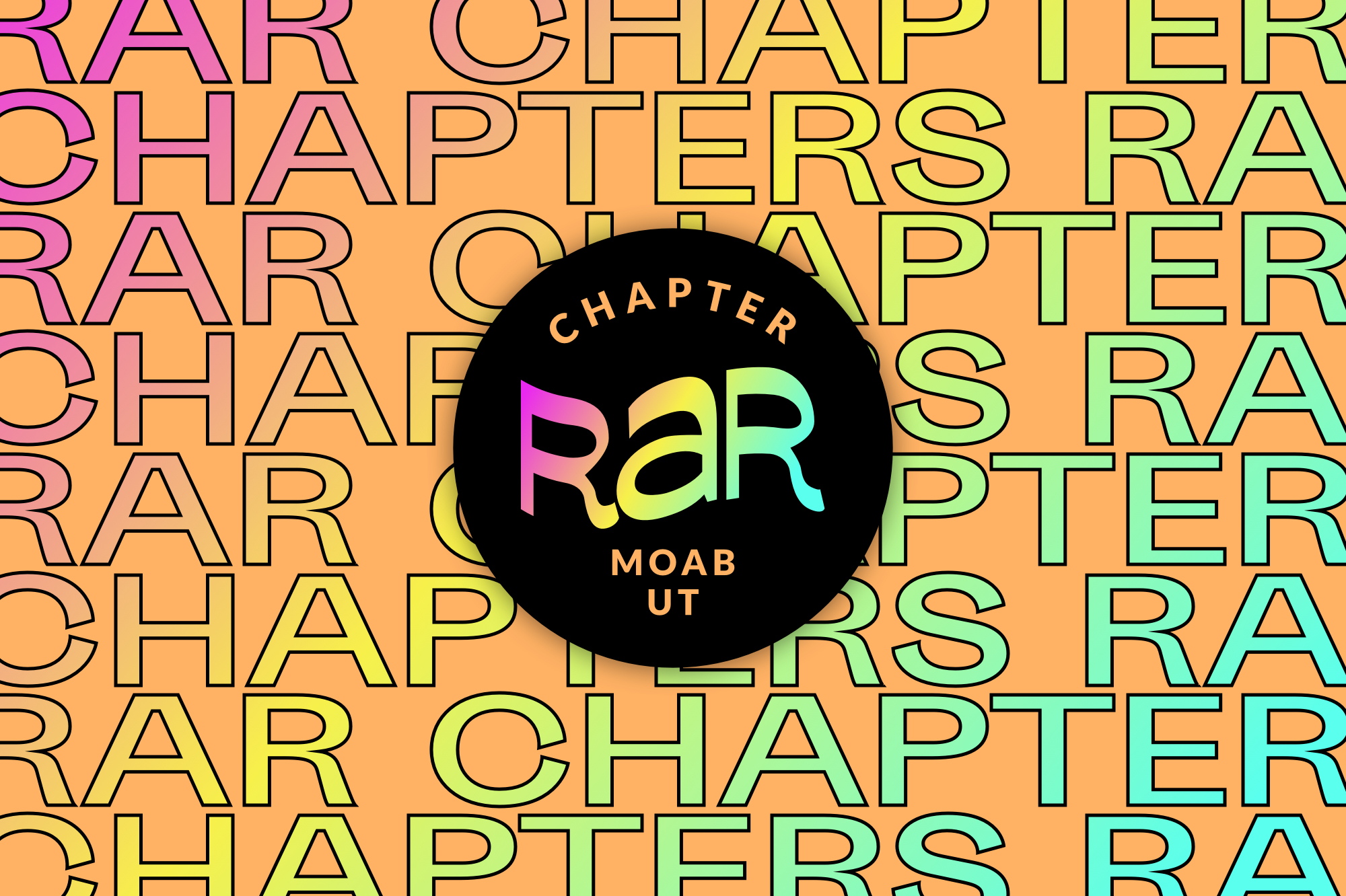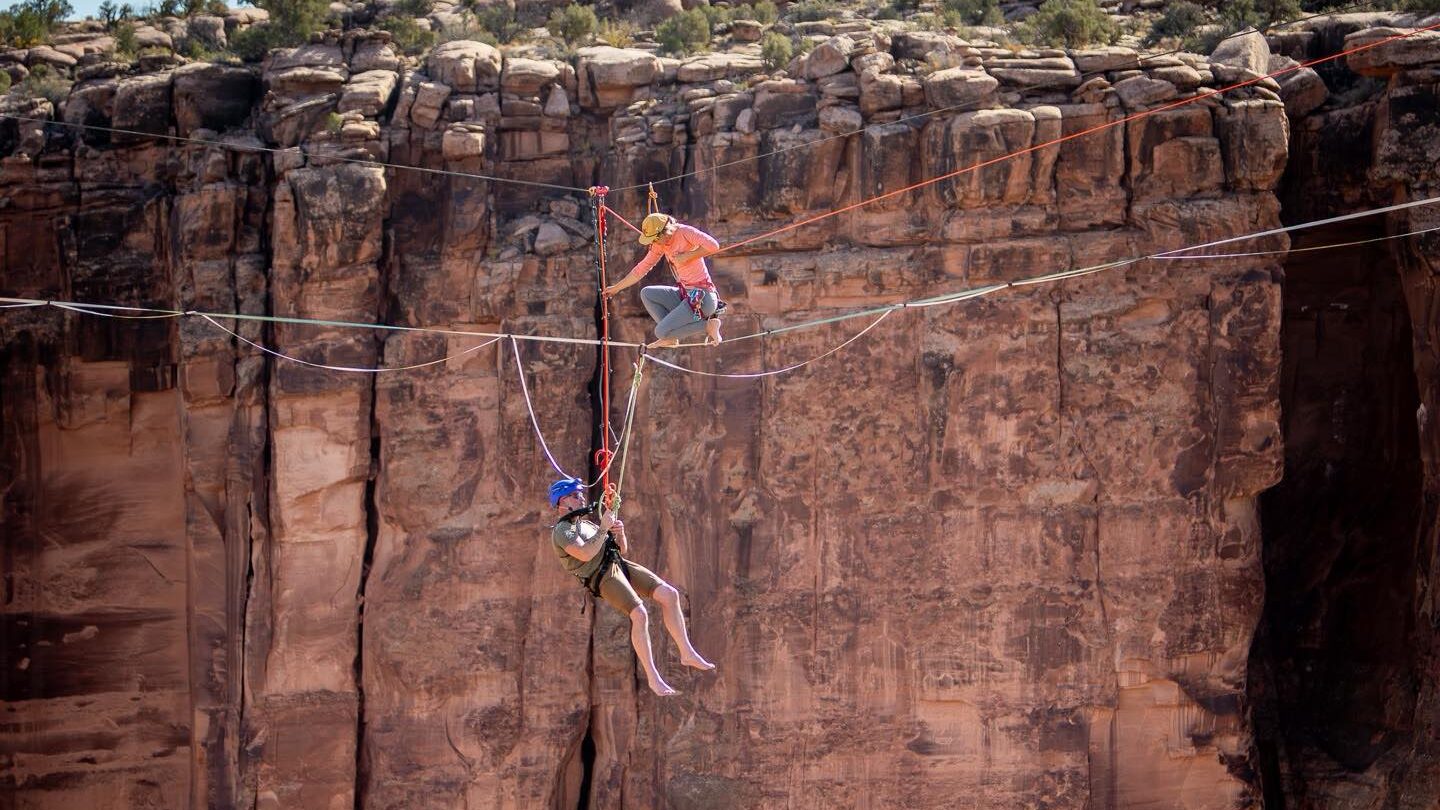Some information may be outdated.
Four locals start group to promote inclusive cycling
Moab will soon be home to a new chapter of “Radical Adventure Riders,” a nationwide organization promoting gender inclusivity and racial equity in adventure bike riding.
According to the 2022 Outdoor Participation Trends Report by the Outdoor Foundation, most bikers are men—57%, to 43% women—and in general, most outdoor recreation participants are white (nearly 75%).
The Moab chapter will host bike rides and events to support cyclists who fall into the categories of FTWN-B (femme, trans, women, and non-binary) and BIPOC (Black, Indigenous, and people of color). Four local women are leading the chapter: Makeda Barkley, Molly Harrison, Paige Stuart, and Zoe Huston.
“It’s about supporting and going out of your way to include people who aren’t normally included or thought of,” Barkley said.
Barkley had been involved with RAR for a while, since around the time she became interested in cycling. At first, the group mostly existed online to help people connect. Forming a chapter in Moab seemed unattainable—Moab is small compared to other cities where RAR has chapters, like Asheville, North Carolina; Boise, Idaho; and Santa Fe, New Mexico.
Earlier this year, when RAR opened its chapter application process, Barkley again thought Moab would be out of the picture. But Harrison reached out to her and said they could do it together. Moab’s biking community already has a few organizers who create group rides (@moabbikeclub on Instagram), but the RAR chapter will create a more inclusive space, Barkley said.
“I think RAR is a really cool role model for how cycling events and the cycling community can be inclusive and supportive,” she said. “We’ve carved out our own little pocket of community with other women and queer people in Moab, but we’re trying to grow that more and be more intentional about pulling in people who aren’t just in our immediate friend group.”
Molly Sugar, a co-founder of RAR, said the benefits of the organization are the resources it can provide to local communities. RAR gives chapters a framework for events and workshops, and awards each chapter $500 for gear or events. Plus, RAR chapters become part of a worldwide network: chapter leaders can connect to ask each other questions and provide support.
“A lot of folks don’t know how to get started making a group like this—we provide an infrastructure,” Sugar said. “Every year, we try to meet the needs of the RAR community.”
“Having a nationwide support system is really important,” Barkley said. “The people behind RAR have really put in a lot of work and time to come up with all of these resources that they’re able to provide to us … Rather than reinvent the wheel, we’re taking this larger idea and tailoring it to our specific needs. We’re able to hit the ground running.”
The Moab chapter will host biking events, or group rides, for every level of rider, from beginner to expert. The leaders are also planning a bikepacking workshop first to introduce participants to bikepacking gear, then to lead participants on a low-milage, one-night trip. Another critical aspect of the Moab chapter is its interactions with the Diné and LatinX communities in the region: Barkely said the RAR Moab chapter will connect with cycling events hosted on the Navajo Nation and Hopi Reservation. The chapter is still in its leadership onboarding phase but expects to be able to host events starting mid to late August.
“Cis-men have a lot of spaces to themselves—they have a lot of support and camaraderie, and they often dominate the spaces they exist in regardless of their intention,” Barkley said. “I think it’s okay, and it’s beneficial, to have our own spaces for women, trans, and non-binary people to exist. Those spaces are very supportive and collaborative.”
Barkley said what she’s looking forward to the most is sharing the joys of bike riding with new people.
“I love showing people this thing that I find very fulfilling and beneficial for my mental and physical well-being,” she said. “And I’m excited to build community through that.”
Appreciate the coverage? Help keep local news alive.
Chip in to support the Moab Sun News.





